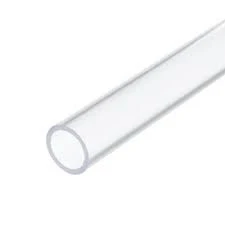Dec . 01, 2024 13:32 Back to list
Exploring the Benefits and Applications of PVC Conduit Pipe in Electrical Installations
The Versatility of PVC Conduit Pipe An Essential Component in Modern Electrical Systems
In the world of electrical installations, ensuring safety and reliability is paramount. One of the unsung heroes in achieving these goals is the PVC conduit pipe. PVC, or polyvinyl chloride, is a synthetic plastic polymer that has become a staple material in various industries, especially in construction and electrical wiring.
PVC conduit pipes serve multiple purposes, primarily providing protection for electrical wiring. The durability and resilience of PVC make it an ideal choice for conduits, which are essential for safeguarding electrical cables from environmental hazards, mechanical damage, and exposure to moisture. This is crucial not only for the longevity of the wiring systems but also for the safety of individuals who may come into contact with electrical installations.
The Versatility of PVC Conduit Pipe An Essential Component in Modern Electrical Systems
Moreover, PVC conduit pipe is resistant to corrosion, which is particularly valuable in environments where exposure to chemicals and moisture is a concern. Unlike metal conduits that can rust and deteriorate over time, PVC retains its integrity even in harsh conditions. This characteristic extends the lifespan of the conduit, providing a cost-effective solution for both residential and commercial electrical systems.
pvc conduit pipe

Another advantage of PVC conduits is their versatility. They can be used in a variety of applications, including underground installations, where protection from the elements is critical. Additionally, PVC conduit pipes are available in various sizes and configurations, allowing for customization to meet specific project requirements. This flexibility makes them suitable for different electrical setups, ranging from simple home wiring projects to complex industrial installations.
The installation of PVC conduit pipe is also straightforward and does not require specialized tools, further enhancing its appeal. The joints can be easily glued together, ensuring a secure fit that minimizes the risk of damage or leakage. This simplicity in installation translates to lower overall project costs and allows electricians to complete jobs more quickly.
Furthermore, PVC conduit is environmentally friendly, as it is recyclable and can be reused in the manufacturing of new products. This aspect aligns with the growing emphasis on sustainability in construction practices. Many manufacturers are committed to producing PVC products that adhere to environmental standards, ensuring that the use of these materials contributes positively to the ecosystem.
In conclusion, PVC conduit pipe is a vital component of modern electrical systems. Its lightweight nature, resistance to corrosion, and versatility make it an excellent choice for protecting electrical wiring in various environments. With easy installation and sustainability benefits, PVC conduits are not just a practical solution; they are a forward-thinking choice that aligns with contemporary construction standards. As technology continues to evolve and the demand for efficient electrical systems grows, PVC conduit pipes will undoubtedly remain at the forefront of electrical installations, providing safety and reliability for years to come.
-
High-Quality PPR Pipes and Fittings Durable ERA PPR & PVC PPR Solutions
NewsJul.08,2025
-
Black HDPE Cutting Board - Durable, Non-Porous & Food Safe HDPE Plastic Cutting Board
NewsJul.08,2025
-
High-Quality CPVC Panel Durable HDPE & PVC Panels Supplier
NewsJul.08,2025
-
Double PE Welding Rod Supplier - High Strength, Durable & Versatile Welding Solutions
NewsJul.07,2025
-
High-Quality PVC-O Pipe Supplier Durable 75mm PVC Pipe & Connections Leading PVC Pipe Company
NewsJul.07,2025
-
HDPE Drainage Pipe Supplier – Durable & Corrosion-Resistant Solutions
NewsJul.06,2025

